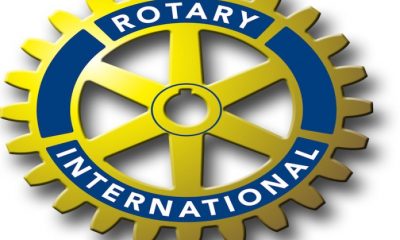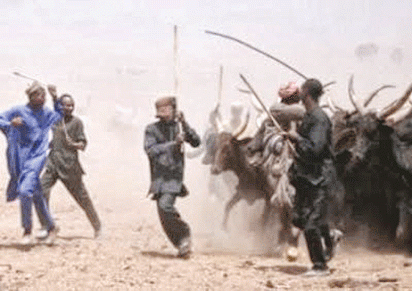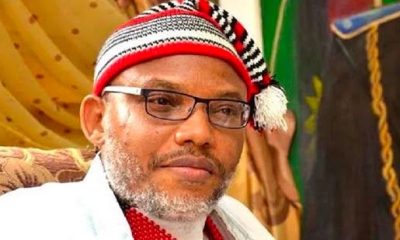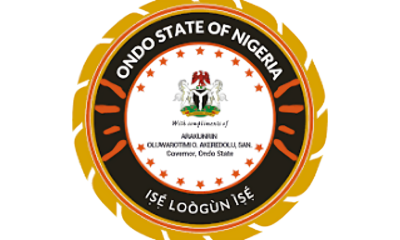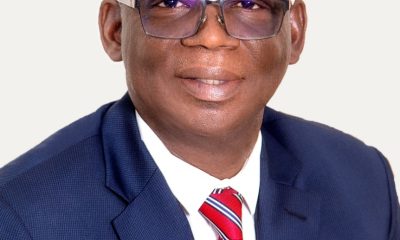Education
Obasanjo to deliver maiden Presidential Lecture series of GOUNI, Enugu

…..Maiden Presidential Lecture series
The former President, Chief Olusegun Obasanjo will on August 25, deliver maiden Presidential lecture series of the Godfrey Okoye University (GOUNI) in Enugu State.
The former president will speak on “Impact of Good Governance on National and Youths Development”.
Rev.
Fr. Christian Anieke, the Vice Chancellor of the University, disclosed this on Wednesday in Enugu while announcing the release of the 2nd Semester examination results of the university for 2022/2023 academic year.Anieke said the lecture would be the first presidential lecture series of the GOUNI, adding that the university would name a building after the ex president.
“Former President Goodluck Jonathan visited here before and now, it is the turn of Obasanjo and we want to create that space for presidents to be visiting the institution,” Anieke said.
Announcing the results of the examination, the vice chancellor said 450 final year students took part in the examination for their first degrees but only 170 students graduated.
He said that of the 170 that graduated, eight made first class, 71 Second Class Upper Division and 81 Second Class Lower Division while 10 graduated with Third Class.
Anieke explained that some of the students that participated in the exam had one or two things to be tiding up before their results could be published while others could be outstanding results.
Read Also: Obasanjo Leads WAEF Pre-election Mission to Sierra Leone
According to him, the whole idea of the information is to let the parents know that they can have access to the results of their children and wards.
“It is important for parents to know what is happening to their children/wards in the university so that they do not get false information about GOUNI.
“All the students now have access to check their results in the school portal, including their parents,” he said.
The VC, while congratulating the successful students, said they could now proceed with their clearance immediately.
He explained that the university had what he described as “General Ability Test” where they tested students from their training both quantitatively and qualitatively.
He equally announced that the university would reopen for the 2023/2024 academic on Oct. 3.
While regretting the attitude of some students who waited till the last minute to begin their academic work, Anieke charged them to start their studies on time to avoid losing a lot. (NAN)
community
UTME: JAMB To Hold Additional Mop-up Exam for Absent Candidates

Joint Admissions and Matriculation Board (JAMB) says it will conduct additional mop-up examinations for candidates who missed the 2025 Unified Tertiary Matriculation Examination (UTME).
JAMB Registrar, Prof. Is-haq Oloyede, stated this on Wednesday in Abuja at a meeting with key stakeholders to address the challenges encountered during the 2025 UTME.
Oloyede said that the board would accommodate the estimated 5.
6 per cent of candidates who missed the examination by organising a special mop-up exercise.He said that the board had extended the opportunity to all the affected candidates, regardless of the reasons for their absence.
“Normally, we hold one mop-up nationwide for those with one issue or the other.
“But this time, we are creating a new mop-up. Even those who missed the earlier examination due to absence, we will extend this opportunity to them.
“It is not that we are doing something extraordinary; in class, you make up an examination when students miss it for one reason or the other; we just don’t allow abuse of that.
“So we will allow all the candidates who missed the main examination for any reason to take part in this mop-up,” he said.
Oloyede criticised some public commentators who misunderstood and misrepresented the role of UTME, while clarifying that UTME was a placement test and not an achievement test.
According to him, the purpose of the examination is to rank candidates for available spaces in institutions and not to measure intelligence or overall academic potential.
The registrar further stated that high UTME score was not the sole determinant of admission, adding that combined performance, including post-UTME scores and school assessments, could significantly affect a candidate’s ranking.
While acknowledging the emotional strain experienced while announcing the UTME results, he noted that this was not indicative of an institutional weakness.
He expressed JAMB’s commitment to resolving issues affecting the examination process, even as he rejected comments suggesting that the administrative failure was due to incompetence or ethnic bias.
“I want to say this clearly, particularly because I accepted responsibility, not because I do not know how to do the work.
“I say it for the fourth time that no conspiracy theory is relevant to this case.
“Something happened; like people who have been doing something well for years and something just went wrong. That I should now throw them under the bus? No,” he said.
Oloyede, who frowned at those exploiting difficulties to promote ethnic or conspiracy-driven narratives, urged stakeholders to stop ethnic profiling in the education sector.
According to him, many of the criticisms of JAMB’s operations are rooted in ignorance.
The registrar, however, commended his team’s efforts, while also appreciating the resilience shown by candidates, many of whom, he said, had continued their exams, notwithstanding the various challenges. (NAN)
Education
Using CBT for WAEC Will Adversely Affect Sciences— Ebonyi Reps Member

A Federal Lawmaker from Ebonyi, Chief Chinedu Ogah, has declared that the usage of the Computer Based Technology (CBT) for the West African Examination Council (WAEC) would adversely affect science subjects.
Ogah, who represents Ikwo/ Ezza South Federal Constituency at the House of Representatives, made the declaration on Tuesday while speaking with newsmen on WAEC’s proposed plan to introduce CBT from 2026.
The lawmaker said that the move would affect several scientific applications practically used to access students in WAEC examinations.
“What will happen to several scientific.mixtures, equations, mathematical applications among others practically applied during WAEC examinations?.
“Such measures are evidently not feasible and will adversely affect sciences in our educational curricular.
“Science is practical and the earlier we understand this, the better for all,” he said.
He noted that the glitches recorded during the recent Joint Admission and Matriculation Board (JAMB) examination was unfortunate.
“The registrar should review the activities of its Information Communication Technology (ICT) department.
“It is ridiculous for JAMB to conduct the examination without adequate provisions for the ease of candidates,” he said.
Ogah urged people from the south east zone which the glitch was touted to have targeted, to embrace the home grown technology it was known for.
“We are known for technology and innovation.
“Government of south east states should equip our schools with ICT so that students would be acquainted with its usage, early,” he said. (NAN)
Education
Apology over Failure Not Accepted, Kalu Tells Oloyede
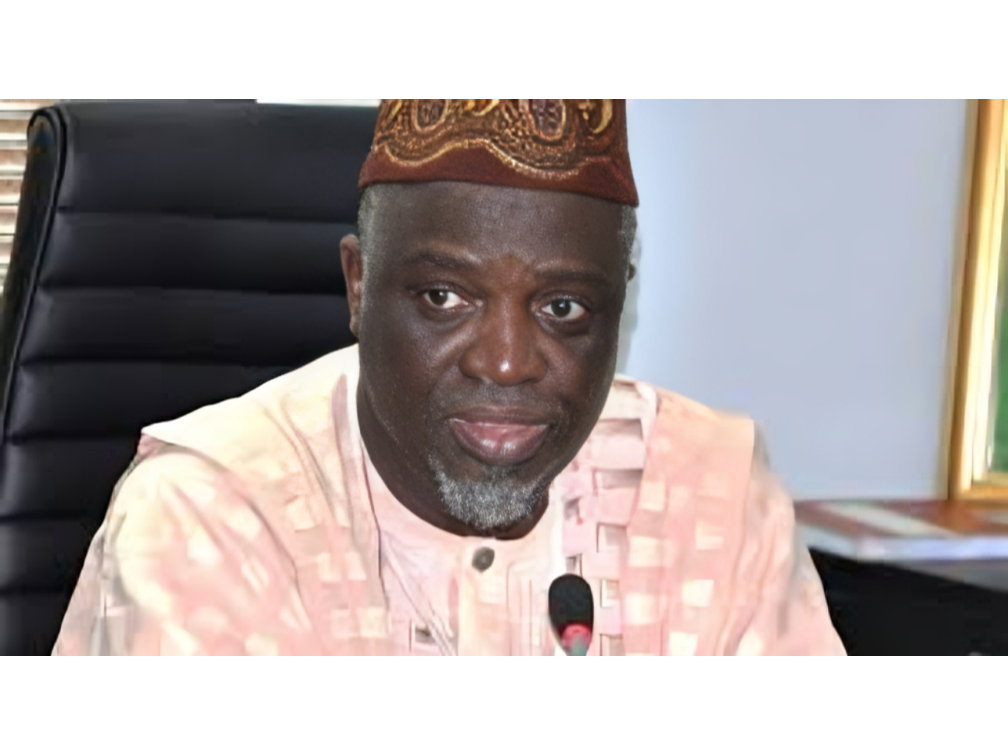
By Ubong Ukpong, Abuja
House of Representatives Deputy Speaker, Rt. Hon. Benjamin Kalu yesterday, raised serious concerns bothering on the activities and competence of the Joint Admission and Matriculation Board (JAMB), blasting the examination body for demonstrating gross incompetence, frustrating Nigerians and the nation’s education system in the 2025 Unified Tertiary Matriculation Examination (UTME).
Kalu, who addressed the House of Representatives Correspondents on his misgivings, said the examination body has cost Nigerian people so much pain, leaving candidates traumatized and hopeless.
“The mass outcry that followed the release of this year’s results, and the subsequent technical review, demands not only transparency but decisive action to restore faith in our educational system.
“First of all, let me begin by commending the candor, touching humility, and accountability demonstrated by the Registrar of JAMB, Professor Ishaq Oloyede, and his team in admitting to the technical errors that affected nearly 380,000 candidates across the South-East Geopolitical Zone and Lagos. The swift apology and the decision to offer retake opportunities for all affected candidates reflect a commitment to fairness and justice.
“However, we must recognize that these measures, while necessary, do not erase the trauma, disruption, and uncertainty experienced by our young people and their families. Nigeria unfortunately lost a UTME candidate to suicide, consequentially triggered by the ensuing results of this technical glitch. Our heart goes out to the loved ones of this brave young one.”
On the technical Issues in Detail, the Deputy Speaker who sounded quite displeased said, “The technical review results available to me have revealed that a critical system patch essential for the new shuffling and validation protocols was not deployed to the server clusters servicing 157 centres in the South-East and Lagos.
“One of the most critical discoveries made revolved around three major systemic changes introduced in the 2025 UTME. The first was a shift from the traditional count-based analysis to a more robust source-based analysis of results. In previous years, JAMB evaluated the integrity of examination sessions primarily by counting the number of responses submitted per session. If the majority of candidates in a session of 250 submitted a near-complete set of answers, the session was deemed valid.
“Any significant deviation led to the disqualification of that centre’s results.
However, in 2025, a more advanced model was adopted; one that focused on the actual source and logic of the answers provided, rather than just their quantity.
“The second change involved full-scale shuffling of both questions and answer options. This ensured that even two candidates sitting in the same session would not receive identical permutations, thereby enhancing test security. The third change was a series of systemic improvements aimed at optimizing performance and reducing lag during exam sessions. This was a major policy change that saw the best and highest obtained UTME score in 15 years; a remarkable achievement by JAMB in principle.
“However, while these improvements were technologically sound in theory, a major operational flaw was uncovered during the implementation phase.
“The system patch necessary to support both shuffling and source-based validation had been fully deployed on the server cluster supporting the KAD (Kaduna) zone, but it was not applied to the LAG (Lagos) cluster, which services centres in Lagos and the South-East. This omission persisted across all sessions until the 17th session, after which the error was discovered and corrected.
“As a result, approximately 92 centres in the South-East and 65 centres in Lagos, totalling 157 centres, operated using outdated server logic that could not appropriately handle the new answer submission and marking structure. This affected an estimated 379,997 candidates, whose results were severely impacted due to system mismatches during answer validation.
“To verify the scale and accuracy of this issue, JAMB collaborated with the Educare Technical Team, which had gathered response data directly from over 18,000 candidates. After deduplication and filtering, about 15,000 authentic records were analyzed. Of these, more than 14,000 originated from the regions serviced by the unpatched LAG servers, confirming the technical review’s findings. Comparative analyses between JAMB’s internal audits and third-party system evaluations revealed significant overlap, reinforcing the conclusion that the affected centres were indeed operating under impaired conditions.
“As a result, candidates in these centres were unfairly disadvantaged, with their responses improperly validated and their scores misrepresented. This was not a failure of our students, nor a deliberate act of sabotage, but a preventable human error within our system.
“We must not underestimate the toll this has taken. Parents and candidates have voiced legitimate concerns about the hurried scheduling of re-sit examinations, the overlap with ongoing WAEC assessments, the psychological strain, and the logistical burdens of traveling to distant centres on short notice.
“Reports from the resit examinations held on Friday include complaints of difficult questions, time management issues, more technical glitches, poor centre coordination, and a lack of adequate support for those still affected.”
The Deputy Speaker demanded that, in light of these revelations, urgent actions must be taken to protect all candidates that registered for the examination in year 2925.
He demanded a comprehensive review of all Reports, insisting that, “JAMB must immediately review all available technical and independent reports including those from third-party educational technology companies that have gathered candidate-level data to fully understand the scope and implications of the crisis. Only by triangulating internal findings with external audits can we ensure that no affected candidate is left behind.”
Equally, he demanded for an independent System audit, stating that, “Now that the rescheduled examinations have concluded, I urge JAMB to commission an independent, transparent audit of its entire examination infrastructure. This audit should involve external professionals, system engineers, and academic measurement experts to scrutinize every aspect of the CBT engine, question delivery, answer validation, and result collation processes.”
Kalu called for the safeguarding of affected Candidates, stressing that, “It is imperative that candidates from the South-East and Lagos who have already borne the brunt of these failures are not further disadvantaged.
“JAMB must provide a clear, accessible mechanism for remark and appeal, especially for those dissatisfied with the hurried re-sit or who experienced technical difficulties during the second sitting. Furthermore, coordination with WAEC and other examination bodies must continue to ensure that no candidate’s academic progression is impeded by scheduling conflicts.
He sought transparent communication and Data Release, maintaining that, “JAMB should proactively publish anonymized, candidate-level result data for independent verification and open its systems to Freedom of Information (FOI) requests as a gesture of transparency and accountability.
This will go a long way in rebuilding public trust.”
The Deputy Speaker called for the strengthening of Quality Assurance and Real-Time Monitoring saying that, “going forward, JAMB must implement stronger deployment validation protocols and real-time monitoring mechanisms to prevent recurrence.Every system update must be thoroughly tested and confirmed across all server clusters before deployment during high-stakes examinations.”
Admonishing the affected candidates, Kalu said, “Your frustration is valid, and your voices have been heard. The integrity of our national examinations must never be compromised by technical lapses or human error. As Deputy Speaker, Iassure you that the National Assembly stands ready to provide oversight and ensure that these reforms are not only promised but delivered.
“Let us turn this painful episode into a catalyst for lasting improvement. Our young people deserve a system that is not only fair, but resilient, transparent, and worthy of their trust.I end with this word of note to JAMB: “Strive even when you stumble; transparency and honesty builds trust, and trust propels us forward.”
Several candidates across the country have raised diverse concerns with the processes as superintendent by the examination body, JAMB.
Several candidates went to their centres but could not write due to technical issues in taking their biometrics and were recaptured with a promised reschedule, which has not been communicated yet, leaving candidates in panic.
Others were outrightly said to have been deprived from writing the examination for being minors, after all processes were completed and the Print Out issued.
Some who wrote the examination reported issues accessing their results with the issues code, averting that the network kept deducting their money, without offering the requested service.
Certain interests in the academic sector have continued to call for the scrapping of JAMB, insisting that the examination body was unnecessary, but allegedly profiteering from candidates.



